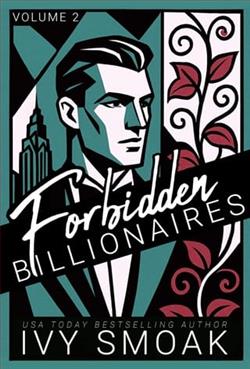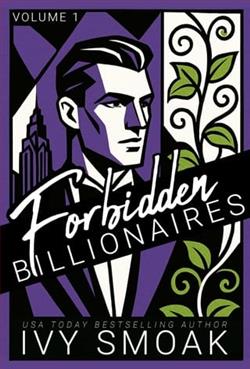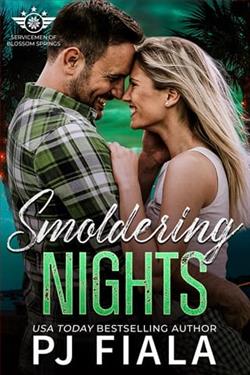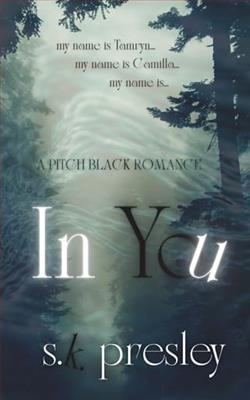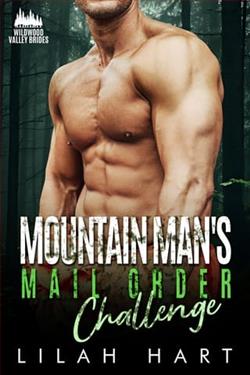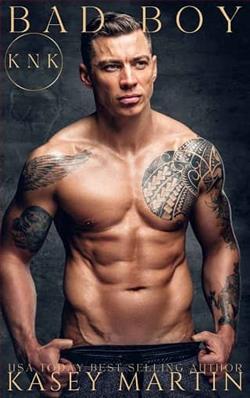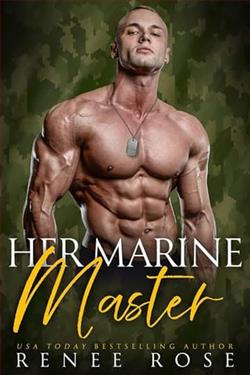Page 33 of So Far Gone
They did. Chuck came around to the passenger side. Kinnick stood holding the gun just outside his truck door, pointed at the ground, his finger to the side of the trigger guard. Chuck went through the steps again. “Okay, safety off, now it’s ready to fire. If we had time, I’d take you to the range, have you practice, but we don’t have time. So, I’m going to tell you a couple of things. And I don’t want you to freak out.”
“I really don’t think—”
“I don’t care what you think. Hold the gun in your right hand and point it at the fender of my truck, above the right front tire. Finger still out of the trigger guard.”
Kinnick did.
“Now, stand with your feet shoulder width apart, your weaker foot slightly in front of your stronger foot. Good. Now, bend your front knee but keep your back leg straight, more of your weight on your front foot, bending forward, elbows slightly bent. Good. Now put both hands on the gun.”
Kinnick did. “This seems like a lot of instruction for something I’m never going to use.”
“Now, pay attention to this part. Everyone thinks you aim for the chest—that’s fine, normally, biggest target. But these para-twats will likely be wearing Kevlar vests. So—don’t worry, and it’s not going to come to this, but if it does—where should you aim?”
“I-I don’t know. The face?”
“You’d think that, but the face is a lot narrower than the rest of the body, a lot smaller, jerkier. That’s why turkey hunting is so tough, you gotta pop that sucker’s head so you don’t ruin the meat. And secondly, you can’t believe how tough it is to look someone in the eye and then shoot them there. Moves around a lot. Your conscience will kick in andyou’ll shift slightly and miss. It’s just damned hard, shooting a man in the face.”
“Have you—”
“God no,” Chuck said. “I’ve never had to fire my weapon on duty. But I know what to do if it comes to that. Now, here’s what you do if someone is wearing a vest. You aim just below their belly fat, to one side or the other. Shoot him in his front pocket. Left or right, doesn’t matter, but you want to hit the torso, the hip.”
“If you haven’t shot anyone, how do you know this?”
Chuck just kept talking. “Shoot a man below the waist and the target is bigger, less mobile. The head flails and flops, but the torso is the last thing to move. You hit a man in the hip, you’ll drop him every time. Got it?”
Kinnick shook his head. “I really don’t—”
“Also”—Chuck’s voice got lower—“the veins are paper thin in the legs. Bleeding is intense. You hit the femoral artery? It’s lights out.” Chuck was behind Kinnick, talking low in his ear as Rhys stood like a tripod, pointing the gun at the fender of the truck, his hands sweaty and shaking slightly. “Lights. Out.” It was quiet a moment and then Chuck’s voice got cheerier. “Any questions?”
The high note seemed so insane that Kinnick could only laugh.Any questions?How about:What the hell?White Nationalist goons stealing children from church parking lots? Rural sheriffs telling him to go pound sand? A manic ex-cop showing him how to shoot people in the front pocket? Was this just how people behaved now? Is this what the world had come to? Seven years in the woods only to emerge and find everything had gotten crazier?
“It’s gonna be fine,” Chuck said. “If it comes to it, just think of them as raccoons.”
“Raccoons,” Kinnick said, and he pictured those remorseless creatures, their dirty little hands, their unblinking eyes, shoving tiny pieces ofpink Hostess Snoballs into their greedy mouths; it was harder, though, imagining them driving away with his grandchildren.
Chuck patted his shoulder. “You got this, John Wick. Now, put the gun back in its case and let’s go get your grandkids.”
Rhys opened the case and put the magazine in, then settled the black handgun back in its little nook. “Who’s John Wick?”
“I wouldn’t worry about it,” Chuck said.
***
The signs began to appear the minute they left the highway.no trespassing,private property,andbeware of dogwere practically native plants up here, but these handwritten signs, leading uphill toward the Rampart, took on a more insistent, ominous, and misspelled tone. TURN BACK NOW! TRESSPASSERS WILL BE DEALT WITH! BOW BEFORE THY VENGEFULL GOD! SOVEREIGN ARMED CITIZENS AHEAD! And one large sign at the open gate of a barbed wire fence, which Chuck had to slow down to read: COMMYS, LIBERALS, FEDS, SORROS FBI, AND ALL WHO REJECT THE LORD AND HIS TEACHINGS—STAY OUT!
“I don’t see retired cops or shitty grandparents on that list,” Chuck said, “so, I guess we’re good.” These were the first words either of them had spoken since they’d turned down this unmarked road, which quickly devolved into two tracks in the forest, little pine sprigs scraping on the underside of Chuck’s pickup.
He eased the truck through the first open gate, feeling a rising buzz of adrenaline. “Here we go...” God, how he missed this feeling—and something else that Chuck rarely felt in civilian life: a sense of purpose. He hadn’t always felt it as a cop, of course. Some days the job was like any job, filing paperwork, going to training sessions, spending an hour on the phone with HR trying to figure out what happened to your dental benefits.
But four or five times a year, some part of being a cop inspired him, fired up his adrenaline, and, occasionally, moved him to tears.
His first month in a patrol car, Chuck had broken up a party in a vacant field next to an old rail yard. It was a gathering of the lowest of lowlifes, greasy street people drinking fortified wine and huffing old paint cans at a hobo camp amid the tall grass and railroad ties just east of downtown. When Chuck scattered the skank partiers, he found one person sitting on the ground in front of a smoldering campfire. It was a kid: ratty hair, jagged teeth, brown hooded sweatshirt. Maybe nine or ten.
Chuck asked: “Did one of your parents bring you here?”
The kid just stared.
“How old are you?”








